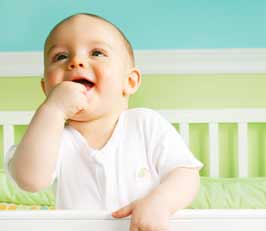Real Nappies - Healthy Life Essex
Home » Articles » Sustainability » Real Nappies
REAL NAPPIES
The easy way to save money
and reduce your carbon footprint
There is so much to consider when preparing for your new baby, yet sometimes little thought is given to the purchase and use of disposable nappies. But if you want to save money and you care about the future for your children and generations to follow, it is certainly worth considering the alternatives.
The facts: Using real nappies ………….
 Cost: £200 could in most cases buy all the nappies and waterproof covers you’ll need for the whole of your baby’s nappy wearing life – and they are reusable for future children. The same amount of money would only buy a baby’s first 20 to 25 weeks of disposables. Even taking into account the total cost of laundering nappies at home, the savings are considerable.
Cost: £200 could in most cases buy all the nappies and waterproof covers you’ll need for the whole of your baby’s nappy wearing life – and they are reusable for future children. The same amount of money would only buy a baby’s first 20 to 25 weeks of disposables. Even taking into account the total cost of laundering nappies at home, the savings are considerable.
A new baby needn’t mean increased waste……
The waste that we generate represents one of the major environmental challenges facing Britain today. By their very nature, the most significant environmental issue with using disposable nappies is their disposal!
- Disposable nappies are responsible for up to 4% of household waste in the UK.
- In households with one baby, disposable nappies often make up 50% of the waste.
- Almost 8 million disposable nappies are thrown away EVERY DAY in the UK.
- That equates to nearly 30 billion per year
- Or 670,000 tons of nappy waste.
- Studies estimate that disposable nappies take at least 200 years to decompose.
The vast majority of waste in this country is land filled. One of the top environmental concerns with landfill is the release of methane, a major green house gas, from the decomposition of paper, wood, food waste and green wastes. Other environmental impacts include water pollution and odour problems. Landfill sites also require land, which is in increasingly short supply.
As already mentioned, studies estimate that disposable nappies take at least 200 years to decompose. This means that every disposable nappy ever sent to landfill is still sitting there and will do so for many years to come. The plastic parts of the nappy may sit there indefinitely! What legacy is that leaving the baby who once wore those disposable nappies?
The most effective environmental solution to the waste problem is to reduce the generation of waste. New parents can do their bit to reduce waste by choosing real nappies in preference to disposable nappies.
| £30 REFUND OFFER
Visit Recycle for Essex website for information on:
You can also find out about financial incentives, including the £30 refund offerwhen you buy cloth nappies. |
Studies have shown that nappy laundry services use 32% less energy than home washing and 41% less water. Number 1’s for Nappies Laundry Service provides new parents with a supply of natural cotton nappies, a collection bin and biodegradable liners. Once used, the biodegradable liner and its contents are flushed down the toilet and the nappy placed in the bin, which is emptied every week and replaced with a fresh batch. Nappies are then taken away and laundered.
Real Nappy Week highlights how parents can help combat climate change by using real nappies. The annual campaign is co-ordinated by Go Real and the Real Nappy Campaign to raise awareness of the benefits of modern washable nappies. All nappies use energy, whether it’s to make disposables or to wash real ones. But, taking everything into account, washing nappies at home (or using a laundry service) leads to less climate change impact than using disposables. Using real nappies could also save tons of waste and money!
A recent survey found 85% of women are very concerned about the effects of climate change on future generations. Using real nappies in the recommended way offers parents of young children one way they can act on CO2 and make a difference. Parents can help to counter climate change and protect their babies’ future with easy to use, modern, self-fastening real nappies. Why not be climate friendly and save money too?
Ian Rapley
Number 1’s for Nappies
www.numberonefornappies.co.uk
02030 515616 / 07951 687730
Number 1’s for Nappies offer a nappy laundry service in parts of Essex, Hertfordshire and Cambridgeshire
